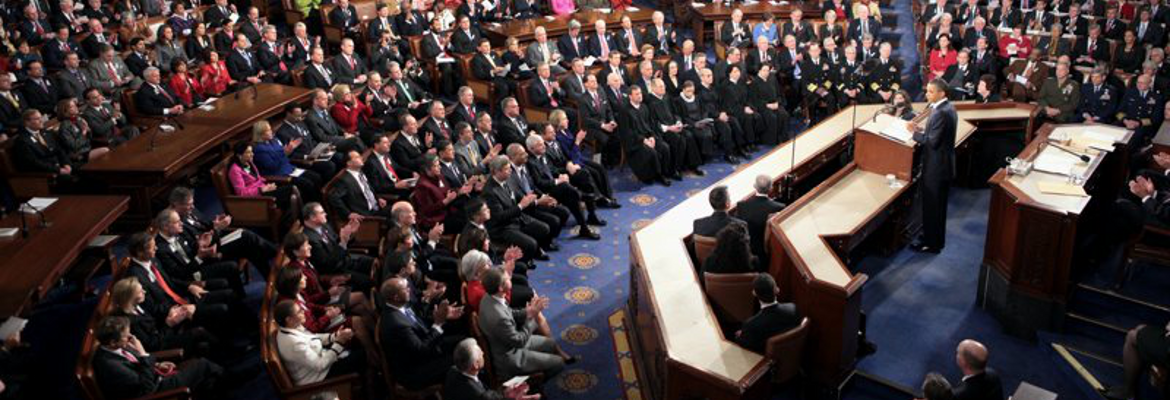Zurich Advocacy Summarizes SOTU
Share this

President Obama delivered his final State of the Union Address on January 12 in what was billed as a “non-traditional” address because it cited no specific major legislative priorities for Congress to work with the Administration on.
Many pundits viewed the speech primarily as the President’s effort to highlight the last seven years as well as take aim at the 2016 elections and the choices American voters have in 2016.
The address will now provide a national reference point for both Democratic and Republican presidential candidates. They may likely look to highlight, leverage, or contrast their vision of the future with what the President offered in his address.
The President covered a wide variety of topics including immigration and criminal justice reform, gun violence, raising the minimum wage, equal pay, clean energy, Cuba, education reform, disease research funding, and our transportation/infrastructure system.
Specific to Zurich’s public policy interests the President did touch on trade (the Trans-Pacific Partnership), tax reform generally, and cutting regulatory “red tape”. He raised concerns over large corporations (and, in particular, financial institutions and “Wall Street”), and the need to ensure fairness—with respect to both regulatory rules and taxes.
The President also mentioned some of our specific customer industries such as energy (citing renewables) and construction (to build a 21st century infrastructure).
Governor Nikki Haley of South Carolina delivered the Republican response to the State of the Union Address. Governor Haley is viewed as a possible Republican Vice Presidential candidate.
The Zurich Advocacy team will remain active in examining any proposals stemming from the President’s State of the Union Address—including items in his subsequent budget release and those coming from key Congressional committees—that have the potential to impact Zurich’s broader policy agenda.
Zurich Advocacy Summarizes SOTU
Share this

President Obama delivered his final State of the Union Address on January 12 in what was billed as a “non-traditional” address because it cited no specific major legislative priorities for Congress to work with the Administration on.
Many pundits viewed the speech primarily as the President’s effort to highlight the last seven years as well as take aim at the 2016 elections and the choices American voters have in 2016.
The address will now provide a national reference point for both Democratic and Republican presidential candidates. They may likely look to highlight, leverage, or contrast their vision of the future with what the President offered in his address.
The President covered a wide variety of topics including immigration and criminal justice reform, gun violence, raising the minimum wage, equal pay, clean energy, Cuba, education reform, disease research funding, and our transportation/infrastructure system.
Specific to Zurich’s public policy interests the President did touch on trade (the Trans-Pacific Partnership), tax reform generally, and cutting regulatory “red tape”. He raised concerns over large corporations (and, in particular, financial institutions and “Wall Street”), and the need to ensure fairness—with respect to both regulatory rules and taxes.
The President also mentioned some of our specific customer industries such as energy (citing renewables) and construction (to build a 21st century infrastructure).
Governor Nikki Haley of South Carolina delivered the Republican response to the State of the Union Address. Governor Haley is viewed as a possible Republican Vice Presidential candidate.
The Zurich Advocacy team will remain active in examining any proposals stemming from the President’s State of the Union Address—including items in his subsequent budget release and those coming from key Congressional committees—that have the potential to impact Zurich’s broader policy agenda.



